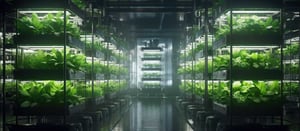WHAT IS PrimusGFS CERTIFICATION?
PrimusGFS (Global Food Safety Initiative) certification is a food safety standard specifically designed for the fresh produce industry. It covers various aspects of food safety, including good agricultural practices (GAP), good manufacturing practices (GMP), and food safety management systems.
The certification is intended to ensure that food producers meet high standards for food safety and quality, minimizing risks of contamination and ensuring safe products for consumers.
Here are the key components of PrimusGFS certification:
- Good Agricultural Practices (GAP): Focuses on practices on the farm, including soil, water, pest control, and employee hygiene.
- Good Manufacturing Practices (GMP): Covers the processes in packing houses and processing plants, emphasizing cleanliness, proper handling, and storage.
- Food Safety Management System (FSMS): Ensures that there is a systematic approach to managing food safety, including hazard analysis and critical control points (HACCP), risk assessment, and documentation.
PrimusGFS certification is recognized by the Global Food Safety Initiative (GFSI), making it a credible and widely accepted standard within the industry. It helps companies demonstrate their commitment to food safety and gain trust from consumers and business partners.

What is FSMS?
A Food Safety Management System (FSMS) is a structured approach to managing food safety hazards, ensuring that food products are safe for consumption. It incorporates principles like Hazard Analysis and Critical Control Points (HACCP) to identify and control risks throughout the production process. An FSMS includes detailed documentation, standard operating procedures (SOPs), and regular monitoring to maintain and enhance food safety standards. By implementing an FSMS, companies comply with regulations and demonstrate their commitment to food safety and quality.
BENEFITS OF PrimusGFS:
Market Access and Competitiveness:
A fresh produce supplier in California gained PrimusGFS certification to meet the requirements of large retailers like Walmart and Costco. This certification allowed them to secure contracts with these major buyers, significantly increasing their market reach and sales volume.
Consumer Trust and Confidence:
A small organic farm in Florida obtained PrimusGFS certification to demonstrate their commitment to food safety. This certification reassured their customers about the safety of their produce, leading to increased customer loyalty and higher sales at local farmers' markets and organic food stores.
Regulatory Compliance:
A packing house in Texas achieved PrimusGFS certification, ensuring they met both state and federal food safety regulations. This compliance helped them avoid costly fines and legal issues, ensuring uninterrupted operations and a strong reputation within the industry.
Risk Management:
A vegetable processor in Arizona implemented PrimusGFS standards to identify potential contamination risks in their processing line. This proactive approach helped them prevent a potential listeria outbreak, avoiding a costly recall and protecting their brand's integrity.
Operational Improvements:
A berry farm in Oregon utilized the PrimusGFS certification process to streamline their operations. By adopting best practices and improving their food safety management system, they reduced waste, improved product quality, and increased overall efficiency, leading to cost savings and higher profitability.
Customer Requirements:
A greenhouse operation in New Jersey sought PrimusGFS certification to meet the stringent food safety requirements of a large restaurant chain. By achieving certification, they maintained their supply contract with the chain, ensuring a steady and reliable revenue stream.
International Recognition:
A citrus exporter in California achieved PrimusGFS certification to enhance their credibility with international buyers. This certification facilitated their entry into new markets in Europe and Asia, boosting their export sales and global presence.
These examples illustrate how PrimusGFS certification can lead to tangible benefits, from gaining new business opportunities to improving operational efficiency and ensuring regulatory compliance.

REQUEST A QUOTE FOR PrimusGFS CERTIFICATION:
PrimusGFS CERTIFICATION REQUIREMENTS
Here are the primary requirements, along with real-life examples to illustrate each:
Requirement: Implement a comprehensive FSMS, including documentation, hazard analysis, and risk assessments.
Example: A tomato farm in Florida developed a detailed FSMS that included regular risk assessments and updated documentation. This helped them identify potential hazards early and maintain high safety standards, leading to fewer incidents of contamination.
Requirement: Follow GAP guidelines covering soil management, water quality, pest control, and employee hygiene.
Example: A lettuce farm in California adopted GAP practices by regularly testing their irrigation water for contaminants and training employees on proper hygiene. This reduced the risk of E. coli outbreaks and improved product safety.
Requirement: Implement GMPs in packing houses and processing facilities, focusing on cleanliness, proper handling, and storage.
Example: A citrus packing house in Texas implemented GMPs by establishing strict cleaning schedules, ensuring that all equipment was sanitized regularly. This minimized the risk of cross-contamination and maintained the quality of their produce.
Requirement: Maintain basic conditions and activities necessary for a hygienic environment, such as sanitation, maintenance, and pest control.
Example: A berry farm in Oregon developed a PRP that included regular pest control measures and routine maintenance of facilities. This helped keep their environment clean and reduced the risk of pest-related contamination.
Requirement: Establish a traceability system to track products from the farm to the final consumer.
Example: A cucumber farm in Georgia implemented a traceability system using barcodes, allowing them to quickly trace any product back to its source. This system proved invaluable during a recall, as they could quickly identify and isolate the affected batches.
Requirement: Develop procedures for identifying, documenting, and addressing non-conformities.
Example: A potato processor in Idaho created a corrective action plan that included detailed documentation of any deviations from standards and steps to prevent recurrence. This ensured continuous improvement in their processes and maintained high safety standards.
Requirement: Conduct regular internal audits to ensure compliance with PrimusGFS standards.
Example: A grape vineyard in Washington State conducted quarterly internal audits, identifying areas for improvement and ensuring that all practices met PrimusGFS standards. This proactive approach helped them maintain certification and improve overall operations.
THE ASI DIFFERENCE
ASI provides comprehensive support for PrimusGFS certification, offering services such as certification process management, tailored training and workshops, consultancy for developing FSMS and compliance with GAP/GMP practices, audit services to ensure ongoing compliance, global recognition to facilitate international market access, and continuous support to maintain certification standards and regulatory updates.
Partnering with ASI can help your company achieve and sustain PrimusGFS certification, enhancing food safety, regulatory compliance, and market competitiveness.

FAQ's ABOUT PrimusGFS
What is PrimusGFS certification?
- PrimusGFS certification is a globally recognized standard for food safety management, primarily aimed at the fresh produce industry. It ensures that food producers and processors adhere to rigorous standards to guarantee the safety and quality of their products.
Why is PrimusGFS certification important?
- PrimusGFS certification is important because it helps companies demonstrate their commitment to food safety, comply with regulatory requirements, meet customer expectations, and access new markets, both domestically and internationally.
Who needs PrimusGFS certification?
- PrimusGFS certification is typically sought by food producers, processors, and distributors involved in the fresh produce industry. It is often required by retailers, wholesalers, and food service providers as a prerequisite for doing business.
What are the key components of PrimusGFS certification?
- The key components include a Food Safety Management System (FSMS), Good Agricultural Practices (GAP), Good Manufacturing Practices (GMP), prerequisite programs (PRPs), traceability, corrective actions, and regular audits.
How do you obtain PrimusGFS certification?
- To obtain PrimusGFS certification, companies must undergo an initial assessment by a certified auditor. They need to demonstrate compliance with all PrimusGFS standards, implement necessary improvements, and undergo regular audits to maintain certification.
What are the benefits of PrimusGFS certification?
- The benefits include improved market access and competitiveness, enhanced consumer trust and confidence, regulatory compliance, effective risk management, operational efficiencies, meeting customer requirements, and gaining international recognition.
How long does PrimusGFS certification last?
- PrimusGFS certification typically lasts for one year. Companies must undergo annual audits to maintain certification and ensure ongoing compliance with PrimusGFS standards.
What is the cost of PrimusGFS certification?
- The cost of PrimusGFS certification can vary depending on the size of the operation, the complexity of processes, and the certification body chosen. Costs typically include initial assessment fees, audit fees, and ongoing maintenance costs.
Is PrimusGFS certification recognized internationally?
- Yes, PrimusGFS certification is recognized internationally and accepted by major retailers and food service providers worldwide. It facilitates trade by assuring global buyers of the safety and quality of products.
What resources are available to help with PrimusGFS certification?
- Resources include training programs, guidance documents, and consultancy services provided by certification bodies and industry associations. These resources help companies understand PrimusGFS requirements and prepare for certification audits.
